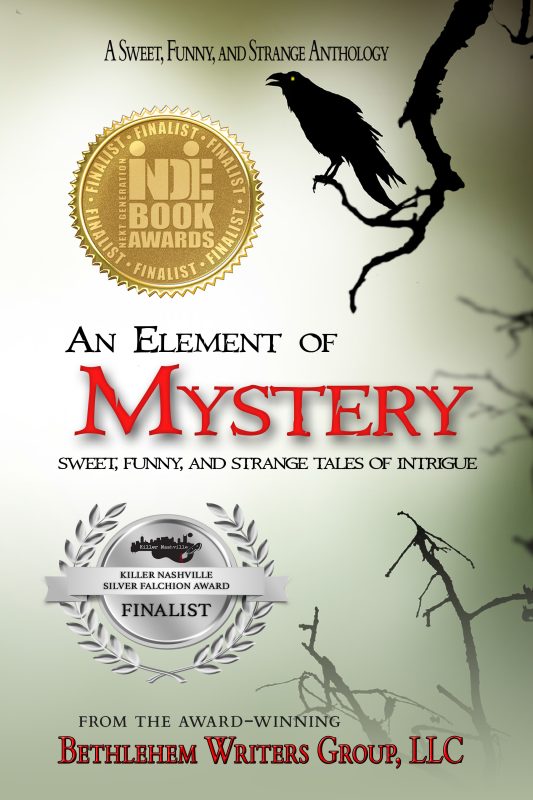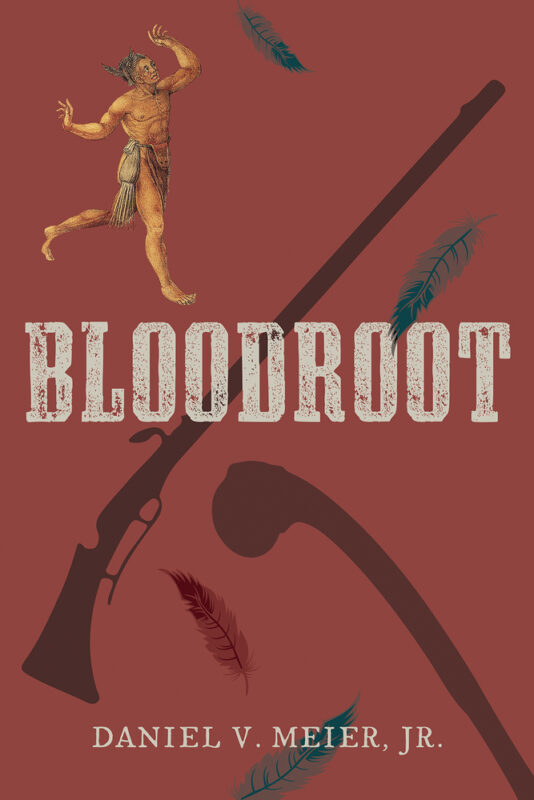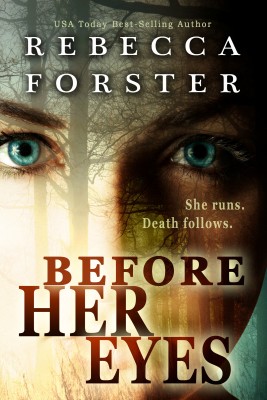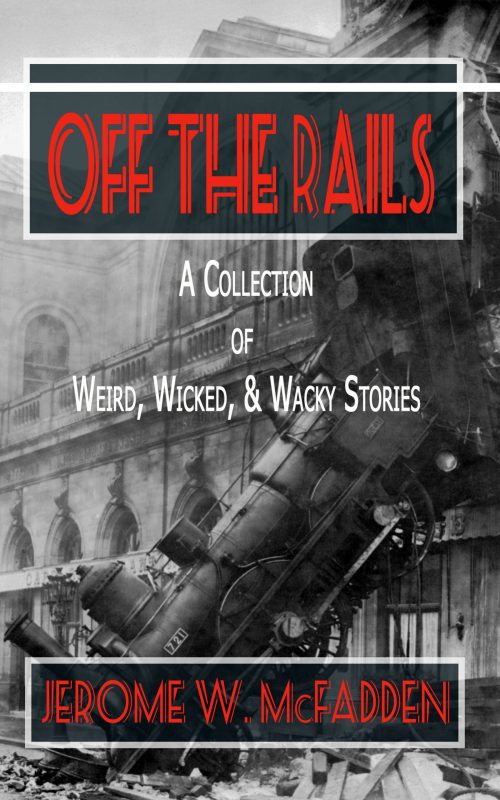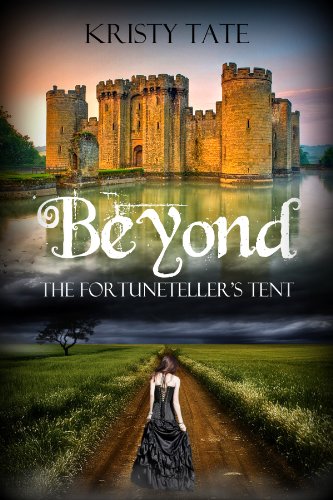Audio-visual Resources Expand Understanding of Google Book Search Settlement
August 24, 2009 by A Slice of Orange in category Archives tagged as Association of American Publishers, Authors Guild, Copyright, Google SettlementYes, it’s me again sharing information on the Google Settlement!
Much has been written about the Google Book Search Settlement. For those who want a better understanding of the Settlement but are a bit print-weary, audio-visual resources have become available in recent weeks that can clarify and expand that understanding.
For a general overview of Google Books and the Settlement on YouTube click here .
For a better understanding of the role of the Settlement in leveling the educational playing field for minority students and students with disabilities click here
For a discussion of what the Settlement means for publishers click here. There’s information on a webinar below as well.
I have to note that I do get irritated at those that trumpet “all content should be free.” Hey, I’m sure we’d all like everything to be free! But if someone started announcing that all lawyers should work for free, or all milk should be free, we’d see the absurdity of that statement! Why can’t they acknowledge the same value for Intellectual Property (IP) or the written material many sweat blood to create.
But there’s also a recent Webinar hosted by Publisher’s Weekly you can access. Go to www.PublishersWeekly.com, click on “Tools” to the far right of the top navibar, then Webcasts and register for the webcast:
Google Library Project Settlement: What It Means for Publishers (or just click on the link!).
You will be able to access the webcast archive for one year following the initial webcast.
Description of the Webinar:
In a webinar first, the leaders involved with the crafting of the Google Library Project Settlement will share with the publishing industry the benefits of the agreement for publishers and authors. If approved by the Court in October, the agreement will create one of the most far-reaching intellectual, cultural, and commercial platforms for access to digital books for the reading public, while granting publishers unprecedented opportunities and protections. Presented in collaboration with Google, The Association of American Publishers, and Publishers Weekly, the web session is a must-attend event.
PANELISTS
Richard Sarnoff, Co-Chair, Bertelsmann, Inc., AAP Board of Directors
John Sargent, Chief Executive Officer, Macmillan, AAP Board of Directors
Jan Constantine, General Counsel, Author’s Guild
James Gleick, Author
Michael Healy, Executive Director Designate, Book Rights Registry
MODERATOR
Jim Milliot, News Director, Publishers Weekly
Advice to Myself as a Newbie Author
August 22, 2009 by A Slice of Orange in category Advice to Myself as a Newbie Author by Shauna Roberts tagged as Advice to Myself as a Newbie Author, Kate Carlisleby Shauna Roberts
http://www.ShaunaRoberts.com
http://ShaunaRoberts.blogspot.com
Today’s Guest: Kate Carlisle
After writing for twenty years, Kate Carlisle became an overnight sensation when her debut mystery, Homicide in Hardcover (Signet), hit the New York Times Bestseller List. Romantic Times gave the book 4½ stars and said: “This first in a new series is going to launch Carlisle to bestselling position and have readers looking forward to the next installment of delightfully eccentric characters, droll dialogue and a meticulously planned crime.†A Golden Heart and Daphne du Maurier Award winner, Kate lives and writes in Venice Beach, California.
If you could travel back in time to before you were first published, what advice would you give yourself?
 Wouldn’t it be great to go back in time and give myself advice? The problem is, I’m not sure my newbie self would listen. Maybe that’s why it took me twenty years to publish my first book! Or maybe not. I really did appreciate any advice I could get, but publication just wasn’t meant to be—until recently. So that’s why my number one bit of advice would be . . .
Wouldn’t it be great to go back in time and give myself advice? The problem is, I’m not sure my newbie self would listen. Maybe that’s why it took me twenty years to publish my first book! Or maybe not. I really did appreciate any advice I could get, but publication just wasn’t meant to be—until recently. So that’s why my number one bit of advice would be . . .
1. Have patience, but don’t be passive. Continue to learn your craft. Don’t give up. Perseverance is the key. Just because you’re not published yet doesn’t mean you’re a bad writer. It just means the stars and planets haven’t aligned in your favor yet.
Keep writing, keep sending your work out, keep networking. Make friends with your fellow writers. Polish your work, send it out, start something new. Study the market. Read as much as you can. Don’t be negative. You’re doing exactly what you’ve always wanted to do. Remember all this and you’ll be ready for that moment when it all comes together.
2. Learn to write to a deadline. Before I was published, I felt as though I had all the time in the world to write a book, so I rarely put time limits or deadlines on my work. Now that I’m published, I am frantic with each deadline and petrified that if I don’t spend every spare minute writing, I’ll blow it. I don’t take enough time off to see family and friends. I always feel guilty if I’m not writing. For a while there, I was sure I’d end up with an ulcer, so now I’m teaching myself to budget my time better. My calendar is my best friend. I write everything down now, including estimated page counts on my writing days. It sounds a bit obsessive, but it keeps me honest and happy.
3. Write every day. This is another good habit I wish I’d developed early on. During the last year, I’ve found that if I take a few days or a week off from writing, I’m flummoxed once I get back to the story. I’ve forgotten how to write! I can’t remember the story! What was my hero’s name? I can’t remember! It’s pitiful. I now try to write something, even a paragraph—but hopefully much more—every day.
 4. Clean your room before you begin a new book. Now, this may sound like ridiculous advice to give a writer, but I know that if my room is a mess, if my desk is piled with junk, papers, books, three thousand Post-It notes, and other stuff buried in piles that threaten to bury me if they tumble over, I’m not in a happy place. I tend to let things pile up around me. Not just paper, but laundry, bills, everything. Call it feng shui or just plain good housekeeping, but clean up your room! Get rid of all that stagnant Qi!
4. Clean your room before you begin a new book. Now, this may sound like ridiculous advice to give a writer, but I know that if my room is a mess, if my desk is piled with junk, papers, books, three thousand Post-It notes, and other stuff buried in piles that threaten to bury me if they tumble over, I’m not in a happy place. I tend to let things pile up around me. Not just paper, but laundry, bills, everything. Call it feng shui or just plain good housekeeping, but clean up your room! Get rid of all that stagnant Qi!
You need harmony, not chaos, if you want to be creative. Well, I need that, anyway. How can I think with all that crap piled up all around me? And the dust that collects around those piles is downright harmful to my physical health! So clean things up and be happy.
5. Surprise, it doesn’t get easier. If you think “The Call” will change your life, well, you’re right. It’s the greatest moment ever. But if you think that from this moment on, everything will be hunky dory and you’ll never have to work that hard again, you are soooo delusional! It just gets harder. Harder to come up with ideas, harder to meet deadlines, harder to keep publishers happy, harder to keep up the level of work you need to do to be a working writer. You need to know this early on, then ask yourself the question, is there a better way to make a living?
6. Recognize opportunity and grab it with both hands. Someone once told me that when you pass up an opportunity, you gain ten pounds. Think about it. For me, it was true. I passed up any number of opportunities because I was scared, or shy, or worried that someone wouldn’t like my work or wouldn’t like me. I wouldn’t follow up with editors on contest wins because maybe they would think I was pushy or self-aggrandizing. Instead, I would sit in the back of the room and pretend to be invisible. Ridiculous!
And the thing about opportunity is, that takes many different forms. It might be a request from the chapter to drive an editor to the airport. Or a call for volunteers at a conference. Sometimes, just being friendly to a visitor becomes an opportunity for something greater. You never know when an opportunity will arise, and if you don’t take it, you’ll gain weight. Just sayin’.
✥✥✥✥✥
To learn more about Kate Carlisle, please visit her Web page at http://katecarlisle.com. You can find Homicide in Hardcover at your local bookstore or can order it online at Amazon.com, Barnes & Noble, or Borders.
e-maginings: What Is Erotic Romance?
August 16, 2009 by A Slice of Orange in category Archives tagged as definition, e-maginings, erotic romance, Lyndi Lamont
There seems to be a lot of different opinions about what constitutes erotic romance, so I thought I’d explore some definitions today. It’s a little more complicated than you might think.
Some believe erotic romance is all sex with no plot, so is it the literary equivalent of a porno flick? In order to answer that, we have to distinguish between erotica and porn. I discovered that the word pornography literally means “writing about prostitutes”, and in the 19th century, it was used for factual reports about prostitution. Erotica, on the other hand, comes from Eros, the Greek god of love. So a literal definition might be that pornography is solely about the lusts of the body, while erotica is about the longings of the heart as well. In practical terms, the definition is always somewhat subjective.
Erotica is a sex story; that means it has a plot with a beginning, a middle and an end. Pornography may or may not have a plot. In fact, I was reading recently that some porn stars are lamenting the fact that they don’t even get dialogue any more!
Generally speaking, erotica differs from erotic romance in that it’s the story of a character’s sexual journey rather than the story of a developing relationship. In erotica the main character may have more than one partner and a happily-ever-after twosome is not guaranteed. However, a HEA threesome is a definite possibility!
Like other romances, erotic romance is a love story and you better believe that your readers will expect that HEA. I got dinged by a reviewer for not providing one for my Revolutionary Way spy story, Seducing The Enemy. While the characters did develop a relationship, they were unable to be together in the end, so technically it was erotica, not erotic romance.
 In Passionate Ink: A Guide to Writing Erotic Romance, Loose Id, LLC, 2007, regarding the difference between sensual and erotic romance, Angela Knight points out, correctly IMO, that what drives sensual romances “isn’t sex, but not having sexâ€. In order to maintain sexual tension between hero and heroine, the writer devises external and internal reasons why going to bed with each other is a bad idea. The actual act of making love often signals a significant drop in sexual tension and the writer then has to find a way to make the conflict kick in again.
In Passionate Ink: A Guide to Writing Erotic Romance, Loose Id, LLC, 2007, regarding the difference between sensual and erotic romance, Angela Knight points out, correctly IMO, that what drives sensual romances “isn’t sex, but not having sexâ€. In order to maintain sexual tension between hero and heroine, the writer devises external and internal reasons why going to bed with each other is a bad idea. The actual act of making love often signals a significant drop in sexual tension and the writer then has to find a way to make the conflict kick in again.
So what drives erotic romance?
Obviously, there still have to be reasons why the happily-ever-after ending isn’t guaranteed, despite the fact that they’re having sex at any and every opportunity. Knight refers to this as “romantic tensionâ€. Again, this means strong conflict, especially if you’re writing a full-length novel. I think I prefer to call if “dramatic tension”.
For a little more background, check out this article at my Lyndi Lamont website. And if you’re at all interested in writing erotic romance, I do recommend Knight’s book.
How would you define erotic romance?
Linda / Lyndi
2 0 Read moreBook Trailer: Italian Style
August 11, 2009 by A Slice of Orange in category Archives tagged as Confessions of a Podcast Goddessby Jina Bacarr
Il Profumo del peccato (Sinful Perfume) is the name of my Spice novel, Cleopatra’s Perfume, in Italian. I was very excited to see they used the same cover as my American publisher (Harlequin). Since I had already put together a book trailer in English, I decided to use the same video, podsafe music, still photo, etc.
I love the blurb my Italian publisher wrote, but it was way too long for a one-minute book trailer. So I used what I thought made sense–here is the translation:
“What is hiding in Cleopatra’s Perfume? It all resides in a woman named Eve, a woman reckless, sexy, unleashed, uninhibited, insatiable. Only she can reveal this passionate story with its nonstop erotic scenes…
“Jina Bacarr, author of Passioni di una Geisha (The Blonde Geisha), takes us into a film noirish atmosphere in the year leading up to 1940, enticing us with sensual dreams, spies, secret missions, situations and affairs beyond your wildest imagination.
“Sinful Perfume (Cleopatra’s Perfume): Love, passion, intrigue.â€
Then I recorded the voiceover. I love doing voiceovers (I used to do radio commercials in English and Spanish) and this one was a lot of fun. So here it is, the black and white book trailer in Italian for Il Profumo del peccato. I hope you enjoy it!
Best,
Jina
Jina Bacarr is also the author of The Blonde Geisha , Naughty Paris, Tokyo Rendezvous, a Spice Brief, and Spies, Lies & Naked Thighs, featuring an Indiana Jones in high heels.
Coming in February 2010: The Blonde Samurai “She embraced the way of the samurai. Two swords. Two loves.”
2 0 Read moreNora Ephron and Meryl Streep-screen magic!
August 9, 2009 by A Slice of Orange in category Writing tagged as Abby Gaines, moviesI’m a major admirer of writer / director Nora Ephron and also of actress Meryl Streep. So to have the two women team up in a movie about another woman I admire (Julia Child) on a subject that is one of my greatest passions (cooking)…ah, I’m in movie heaven. I’m talking about Julie and Julia, of course.
But this isn’t a movie review…today I want to ask, what makes for magic on screen? In a movie, as in a book, you can have two very similar stories, yet one is mediocre while the other steps up to greatness. What’s the difference? In a romantic comedy, chemistry is key – Ephron’s Sleepless in Seattle and You’ve Got Mail teamed Meg Ryan and Tom Hanks, whom I think made a great match chemistry-wise. I know lots of people adored When Harry met Sally, but for me, witty as the movie was, the Ryan-Crystal chemistry wasn’t as great. In books, chemistry abounds between so many of Georgette Heyer’s Regency protagonists, while Susan Elizabeth Phillips is a mistress of chemistry on the page in contemporary romances.
Another factor in screen magic is that elusive presence, and that’s something Streep has in spades. In movies from Silkwood to Heartburn, from Kramer vs. Kramer to Adaptation, Streep fills a screen yet doesn’t make it “all about herâ€. Sheer genius.
Lastly, there’s the need for a story that, though it may be about ordinary lives, transcends the trivial and somehow gets to our hearts. This is what I admire about Ephron. She turns even a light comedy into a great story – and you know it’s a great story when you can watch it four, five, six times and it feels fresh every time.
I think that should be the ultimate goal for any romance writer—to write stories that, yes, provide a few hours’ entertainment. But at the same time, they say something about the human condition and the power of love that we never tire of hearing. Anyone got a favorite Ephron and/or Streep movie they’d like to share?
Abby
www.abbygaines.com
Affiliate Links
A Slice of Orange is an affiliate with some of the booksellers listed on this website, including Barnes & Nobel, Books A Million, iBooks, Kobo, and Smashwords. This means A Slice of Orange may earn a small advertising fee from sales made through the links used on this website. There are reminders of these affiliate links on the pages for individual books.
Search A Slice of Orange
Find a Column
Archives
Featured Books
AN ELEMENT OF MYSTERTY: SWEET, FUNNY, AND STRANGE TALES OF INTRIGUE
Dare you read our latest Sweet, Funny, and Strange® Anthology?
More info →OFF THE RAILS: A Collection of Weird, Wicked, & Wacky Stories
What happens if everything you thought you understood goes . . . OFF THE RAILS?
More info →BEYOND THE FORTUNETELLER’S TENT
When Petra Baron goes into the fortuneteller’s tent at a Renaissance fair, she expects to leave with a date to the prom.
More info →Newsletter
Contributing Authors
Search A Slice of Orange
Find a Column
Archives
Authors in the Bookstore
- A. E. Decker
- A. J. Scudiere
- A.J. Sidransky
- A.M. Roark
- Abby Collette
- Alanna Lucus
- Albert Marrin
- Alice Duncan
- Alina K. Field
- Alison Green Myers
- Andi Lawrencovna
- Andrew C Raiford
- Angela Pryce
- Aviva Vaughn
- Barbara Ankrum
- Bethlehem Writers Group, LLC
- Carol L. Wright
- Celeste Barclay
- Christina Alexandra
- Christopher D. Ochs
- Claire Davon
- Claire Naden
- Courtnee Turner Hoyle
- Courtney Annicchiarico
- D. Lieber
- Daniel V. Meier Jr.
- Debra Dixon
- Debra H. Goldstein
- Debra Holland
- Dee Ann Palmer
- Denise M. Colby
- Diane Benefiel
- Diane Sismour
- Dianna Sinovic
- DT Krippene
- E.B. Dawson
- Emilie Dallaire
- Emily Brightwell
- Emily PW Murphy
- Fae Rowen
- Faith L. Justice
- Frances Amati
- Geralyn Corcillo
- Glynnis Campbell
- Greg Jolley
- H. O. Charles
- Jaclyn Roché
- Jacqueline Diamond
- Janet Lynn and Will Zeilinger
- Jaya Mehta
- Jeannine Atkins
- Jeff Baird
- Jenna Barwin
- Jenne Kern
- Jennifer D. Bokal
- Jennifer Lyon
- Jerome W. McFadden
- Jill Piscitello
- Jina Bacarr
- Jo A. Hiestand
- Jodi Bogert
- Jolina Petersheim
- Jonathan Maberry
- Joy Allyson
- Judy Duarte
- Justin Murphy
- Justine Davis
- Kat Martin
- Kidd Wadsworth
- Kitty Bucholtz
- Kristy Tate
- Larry Deibert
- Larry Hamilton
- Laura Drake
- Laurie Stevens
- Leslie Knowles
- Li-Ying Lundquist
- Linda Carroll-Bradd
- Linda Lappin
- Linda McLaughlin
- Linda O. Johnston
- Lisa Preston
- Lolo Paige
- Loran Holt
- Lynette M. Burrows
- Lyssa Kay Adams
- Madeline Ash
- Margarita Engle
- Marguerite Quantaine
- Marianne H. Donley
- Mary Castillo
- Maureen Klovers
- Megan Haskell
- Melanie Waterbury
- Melisa Rivero
- Melissa Chambers
- Melodie Winawer
- Meriam Wilhelm
- Mikel J. Wilson
- Mindy Neff
- Monica McCabe
- Nancy Brashear
- Neetu Malik
- Nikki Prince
- Once Upon Anthologies
- Paula Gail Benson
- Penny Reid
- Peter J Barbour
- Priscilla Oliveras
- R. H. Kohno
- Rachel Hailey
- Ralph Hieb
- Ramcy Diek
- Ransom Stephens
- Rebecca Forster
- Renae Wrich
- Roxy Matthews
- Ryder Hunte Clancy
- Sally Paradysz
- Sheila Colón-Bagley
- Simone de Muñoz
- Sophie Barnes
- Susan Kaye Quinn
- Susan Lynn Meyer
- Susan Squires
- T. D. Fox
- Tara C. Allred
- Tara Lain
- Tari Lynn Jewett
- Terri Osburn
- Tracy Reed
- Vera Jane Cook
- Vicki Crum
- Writing Something Romantic
Affiliate Links
A Slice of Orange is an affiliate with some of the booksellers listed on this website, including Barnes & Nobel, Books A Million, iBooks, Kobo, and Smashwords. This means A Slice of Orange may earn a small advertising fee from sales made through the links used on this website. There are reminders of these affiliate links on the pages for individual books.

